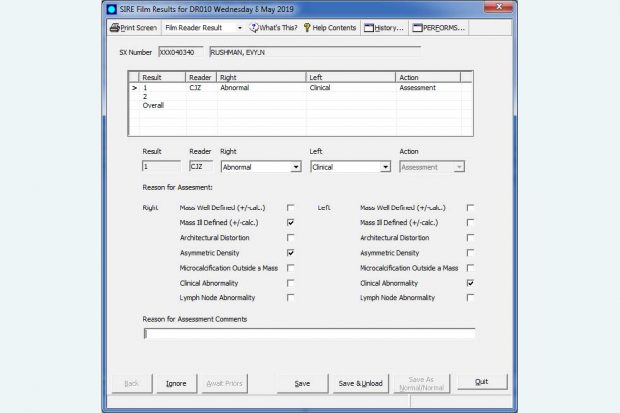
The NHS Breast Screening Programme’s record keeping is remarkable.
I can look through my personal mammogram film reading record, warts and all, since the start of my career. I can see all the cases I recalled, and did not, and read off the outcomes.
The concept of recording everything in one gigantic database seemed ambitious back then. But it has paid off, it seems, because our breast screening readers are some of the best in the world and we can prove it.
When I was a quality assurance radiologist, people occasionally asked me how they could audit their own film reading. I could give them a chart – you’ve got the Breast Screening Information System (BSIS) for that now – or explain film reader quality assurance (FRQA) to them.
Helping assessors to evaluate performance
However, when they asked about breast screening assessment I had to shrug. Understanding assessment performance has always been a gap in the system.
Remarkably, it is really hard to help assessors understand the patterns of their assessment, to delve into their own data and really get to grips with what they are being asked to assess and what the conversion rate to cancer diagnosis is. We do not know this data because we do not know what they are assessing, even though we now know who the assessor making the decisions is for each case (the responsible assessor).
That is why the next release of the National Breast Screening System (NBSS) is introducing a new ‘reason for recall to assessment’ field. This will allow mammogram image readers to report the reason for recall if an opinion of ‘abnormal’ or ‘clinical’ is entered. This will allow better evaluation of the quality of the assessment process against the latest version of the assessment guidance.

This will give us better information than ever before about what is being recalled and how it is being assessed.
It should:
- help identify problems that may have been overlooked previously
- encourage best practice
- aid personal audit
For the first time, readers will be able to see what they recall and what the chances of each category of recall being cancer actually are.
In future, this should improve knowledge of our strengths and weaknesses, and continue to improve the national programme.
PHE Screening blogs
PHE Screening blogs provide up to date news from all NHS screening programmes. You can register to receive updates direct to your inbox, so there’s no need to keep checking for new blogs. If you have any questions about this blog article, or about population screening in England, please contact the PHE screening helpdesk.